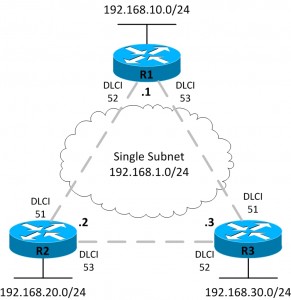Welcome to the FreeCCNAStudyGuide Blog. As you might expect we will cover items surrounding the Cisco CCENT (Cisco Certified Entry Networking Technician) and CCNA (Cisco Certified Networking Associate) exams. The topics covered can range from the R&S (Routing and Switching), Wireless, Security and Voice exam predominantly. So check back every now and then for new post as we hope you will find them useful in preparing for your Cisco certification exams. Thus to start off the blog we will cover what is the CCENT and CCNA exams and how do most people approach them and what are the next steps most people take in their Cisco careers.
How Do I Become CCENT or CCNA Certified?
October 1, 2013 Cisco changed the requirements for obtaining your CCNA certification. This had a domino effect and actually changed the requirements for a few different certifications. The first is Cisco updated the blueprint topics of the CCENT exam and gave it a new exam number of 100-101. The updated CCENT exam is much harder. To understand how and why, you need to know a little bit about the history of the CCNA exam and how it evolved over the years.
Originally the CCNA exam was a single exam and there was no such thing as the CCENT certification. Then as the years went by Cisco kept adding more and more concepts to the CCNA exam until it became really overwhelming for most trying to break into the networking industry. So then what Cisco decided to do was to try to make it easier for someone to get their CCNA exam by breaking the exam up into two separate exams. So they developed the CCENT certification that is obtained by passing the ICND1 exam which is part 1 of the CCNA certification. Then they developed the ICND2 exam which is part 2 of the CCNA certification and when you pass both you then will have earned your CCNA certification status. So in a nutshell they broke up all the topics that were covered on the CCNA exam into the two exam so if you had let’s say 70 topics (I am just using this random number to illustrate the concept) that could be on the CCNA exam; they might cover 40 of them on the ICND1 exam and the other 30 on the ICND2 exam so you could really focus on learning those specific topics. As mentioned before, this seems to work very well for those that are new to networking. The current exam numbers are 100-101 for the ICND1 exam which when passed you obtain your CCENT certification. The cost of the exam is $150 and you can expect to have somewhere between 40 to 50 questions on the exam with 90 minutes to answer them. The current exam number for ICND2 is 200-120 and again you can expect to have 40 to 50 questions, 90 minutes to complete the exam and the cost is also $150.
Now for those who have been in networking for a while and know a lot of the material from real hands on experience; those associates may tend to take what is referred to as the composite CCNA exam. The composite exam is a single exam you can take to obtain your CCNA certification so you do not have to take two separate tests just like the old days. So a person taking this exam would have to know all 70 topics but would not have to come back to the testing center twice. The current composite exam is exam number 200-120. You can expect to have somewhere between 50 to 60 questions on the exam and you have to score 825 or better out of 1000 to pass the exam. The price for the 200-120 composite exam is $295 so there is no real financial savings taking the single exam versus the two part exam.
Something that you may have noticed is when Cisco did update the CCNA certification program, they added the R&S (Routing and Switching) designation after the name to better align with their current naming structure of the CCNP and CCIE certification tracks. This is not really a surprise as you they already had the CCNA Wireless, CCNA Security, CCNA Voice and CCNA Data Center certifications. So all they did was specify that the “base” was the Routing and Switching certification just like we have CCNP R&S and CCIE R&S. Another change that was made to the CCNA certification program was the CCENT certification is now a pre-requisite to any of the other CCNA certifications such as CCNA Security, CCNA Voice, CCNA Wireless or CCNA Data Center. So you may ask if you took the composite CCNA exam and skipped over the CCENT certification do you have to go back and get that to go for one of the advanced CCNA certifications? No, you do not as the CCNA certification will also suffice in that case.
So we covered lots of great information on the exams here. One of the best ways to prepare for the exam is with some real world hands-on experience. In that case you should learn how to build your own CCENT or CCNA home lab. Visit this link to learn best practices on how to build your lab! How to Build a CCENT-CCENT Home Lab Best Practices to Pass your Exam!

